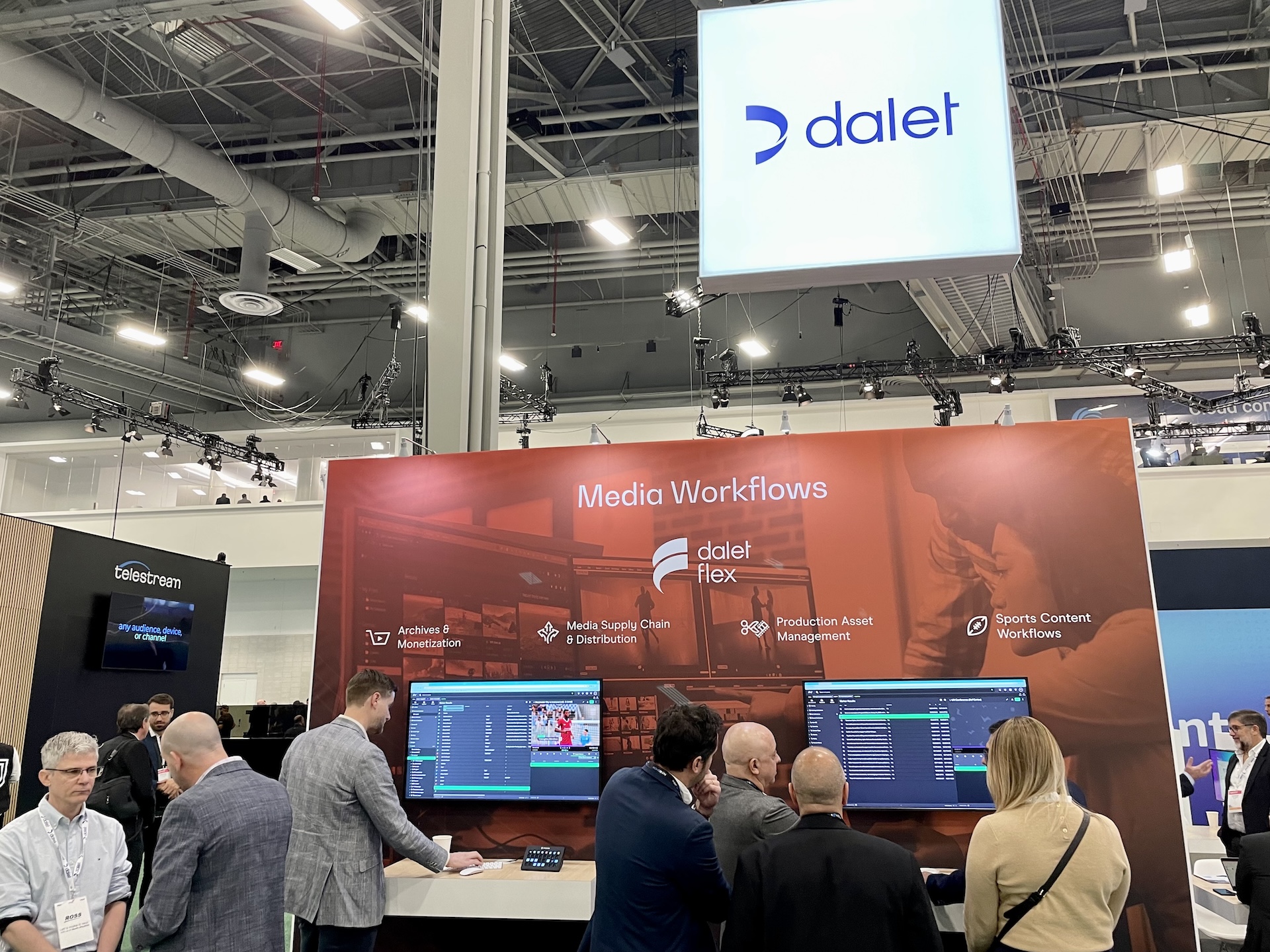AI, AI, AI. Rarely have we seen a technology grow its footprint so quickly in conversations with our customers and the market. Yet, a significant chasm remains between the hype of lofty promises and the sobering reality of successful adoption—beyond ‘shadow AI’ and user experiments that are not necessarily supported by organizations! Why is that?
From practical, integrated AI to… GenAI
AI technologies progressed drastically in the last few years. Speech-to-text and face recognition are prime examples of use cases where AI-driven solutions that have existed for many years have now reached an acceptable level of maturity and commercial viability. Other use cases that rely on generative AI already offer potential business value and the ability to improve end-users’ experiences: semantic search, content summarization, copywriting, headline suggestion, assistance in adapting the length of a text, generating highlights from a video… the list is long and growing!
This is just the beginning
We are on the cusp of major advancements that will dramatically increase the value generative AI can bring to our industry:
- The development of truly multi-modal AI models capable of efficiently working with multiple types of data (text, images, audio, and video). For example, GPT-5, the next generation of OpenAI’s model powering ChatGPT, is slated for release this year and is expected to bring significant improvements in this area. For example, Sora, their AI video generator, is a significant step in that direction. Sora can create realistic and imaginative video scenes from text instructions.
- The rise of “AI agents” capable of forming plans to solve a problem and executing on their own without needing step-by-step instructions from a human. The recent introduction of Devin, “the world’s first AI software engineer” by Cognition Labs, has shaken the industry and is a great illustration of what’s to come.
This year, game-changing developments will likely surpass our expectations, drastically disrupting businesses in 2025 and beyond. We have all witnessed massive industry transformations in the past – think of digital transformation, the transition to SaaS, or cloud computing. The difference with AI is the speed at which it is impacting us as well as the pace at which we all have to adapt.

Getting ready is vital.
How do we prepare? What is currently slowing down successful adoption?
The M&E industry and society as a whole already face pressing ethical issues around AI, notably in tackling bias. As deep fakes grow more sophisticated, our imperative intensifies to combat disinformation, particularly within journalistic spheres. Moreover, recent upheavals in Hollywood underscore the urgency of establishing robust guidelines for integrating AI into the creative realm, while upholding equitable recognition and compensation for human creators. Aware of the potential risks, many governments are now pursuing AI regulation, with new norms and standards that companies should follow to ensure ethical and responsible use across various industries and sectors.
In addition to these ethical issues, Dalet has pinpointed the following critical challenges that we are addressing to unlock AI’s true potential and foster its adoption in the news, sports, and entertainment industries:
- Integration in business workflows: Today Incorporating AI into business workflows often entails employing point solutions such as “translate this,” “summarize that,” or “identify people in this video.” These solutions often require users to deviate from their primary tools, disrupting their workflow by relocating content from central repositories. How do we seamlessly integrate those tools into end-to-end workflows to truly unlock efficiencies?
- Depth and specialization in AI: In a recent DPP podcast featuring Sanjeevan Bala, ITV’s Chief Data & AI Officer, his statement struck a chord: “Fundamentally a lot of these large language models are an inch deep and a mile wide. They’re alright at lots of things, but they’re not great when you go into something very deeply.” How do we go beyond this? How can we imbue AI models with a deeper understanding of the nuances and subtleties of our industry?
- Intellectual Property: Tailoring AI models to your business requires training them on your content. How can we facilitate this process in a manner that respects intellectual property rights, providing the necessary control and transparency, all while safeguarding your most critical assets?
- Controlling AI “hallucinations”: What strategies can we implement to better manage and mitigate AI-generated inaccuracies?
- The Pilot/Co-pilot relationship: AI makes for an incredible “co-pilot,” assisting with numerous tasks. Yet, end-users remain the captains. How do we ensure they maintain the appropriate level of awareness and visibility to identify and control what has been done by AI?
We stand at a pivotal juncture in AI’s ascent. Dalet firmly believes that addressing these questions is crucial to continue enhancing our products with AI and to bring significant value to our customers and the market. We have been offering practical integrated AI through Dalet Media Cortex since 2018. The Dalet Media Cortex AI service platform is a mature, proven assistant that harnesses best-of-breed AI engines to bring AI-infused tools and workflows for key use cases: speech recognition, language translation, automated metadata tagging, and more. The goal? Making media professionals more productive and freeing up time for creative work.
So how do we continue to move forward? At Dalet, our approach to tackling such challenges has not changed; we always place collaboration with our customers and leading organizations in the industry at the heart of the process.
Join the conversation at NAB 2024
The #DaletTeam is exhibiting at NAB Show in the West Hall, booth W1713! Attendees can experience firsthand collaborative, AI-enabled workflows that harness the power of a single, cloud-native technology stack. Learn how you can use these tools to facilitate production, distribution, archive, and monetization. Book a meeting. If you’re not attending, you can learn more about our AI-powered workflows in Dalet’s NAB Previews. We are excited to show how we are integrating AI into our solutions, our vision for the future of media and news production with AI, and our next steps.

Don’t miss Matteo De Martinis’ session, titled “Unlocking the Future of Media with AI: Leading the Change,” scheduled for Sunday, April 14, from 11:00 AM to 11:20 AM PT at the W3943 Connect Tech Chat Theater.
On April 15th, Dalet will host its annual Executive Breakfast. The invite-only event themed “Big Events. Big Changes.” will feature keynotes on strategic topics including AI as well as opening words from our new CEO, Santiago Solanas. Spots are limited and filling up fast: if you believe you qualify, click here to register your interest.
I look forward to seeing you in Las Vegas! Not attending? Contact me on LinkedIn.
Get expert guidance

Mathieu Zarouk
VP, Product Management, Dalet
Featured in: AI | Cloud | Dalet Media Cortex | GenAI | Media Workflows | NAB Show | Speech-to-Text |
Over the past decade, Mathieu has built first-hand experience delivering broadcast projects across Europe and Asia, going on to leading Dalet's EMEA/APAC's Professional Services team. In his current role as VP, Product Management, Mathieu is responsible for shaping Dalet's new generation of solutions.
More Articles By Mathieu

